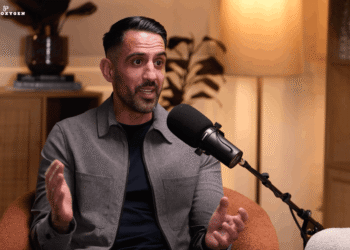“Business can be a significant force for good. And not just because it’s the right thing to do. It’s also the right thing for the business itself. So, being inclusive is a critical component to success,” says Jochen Zeitz, former CEO of Puma and current CEO of Harley-Davidson.
Perhaps surprising words from the leader of one of the world’s most recognisable gas-guzzling motorcycle brands, historically known for its rugged image rather than its inclusivity. But Zeitz is reshaping that legacy, driving Harley-Davidson toward a new future with the launch of LiveWire, the company’s electric motorcycle division.
Not only that, but he’s also credited with bringing in a new era of inclusivity and people-focus, for example implementing the Hardwire Grant, a programme that makes every employee of Harley-Davidson a shareholder in the company. Zeitz’s Hardwire strategy is in its third year and is considered a cornerstone of the firm’s success.
The corporate playing field is peppered with companies that have used social value to boost their profitability. Patagonia is famed for it, but the list of successful brands and household names that have woken up to the power of social value is long; Co-Op, Ikea, M&S, BrewDog, and Unilever to name but a few.
What these companies have discovered is that by weaving social value into their business strategies, they not only differentiate their brands but also cultivate a loyal customer base, attract top talent, and drive revenue – all while making a positive impact.
Below are seven ways business leaders in the technology channel can follow suit and drive profit with purpose through social value:
1. Strengthening brand loyalty
Connecting with customers emotionally has long been the holy grail of sales and marketing. And with good reason. According to Harvard Business Review, fully connected customers are 52% more valuable, which means they buy more frequently, are less price-sensitive and are more likely to recommend the brand.
Social value initiatives create bonds beyond the transactional – they drive emotional connection. When your company sponsors local events, donates to community projects, or supports charitable causes, it reflects on your commitment to more than just profit. For instance, sponsoring a local youth sports team or donating refurbished tech to under-resourced schools demonstrates your commitment to uplifting your local community.
2. Enhancing employee engagement and retention
Employee churn is rife in the channel and keeping hold of the best people is a challenge. As we mentioned in our recent report, fostering a sense of belonging is key to retaining your best people. Social value initiatives can help drive this unity within your organisation and foster a culture of purpose – something that is particularly important to Gen Z. Offering paid volunteering days, matching employee donations, or organising team-based charity activities allows employees to contribute to causes they care about, which boosts morale and engagement.
According to Deloitte, fostering a sense of purpose and belonging can even drive organisational performance. Engaged employees are not only more productive but also more likely to stay with the company, reducing staff turnover and all the associated costs, time and effort it takes to replace employees when they leave.
3. Attracting new talent
Purpose-driven companies hold a strong appeal for today’s workforce, particularly for Gen Z and Millennials, who are the first generation to prioritise purpose and values over salary in their career choices. With nearly 80% of young employees saying they want to work for socially responsible organisations, channel firms with robust social value programmes are the ones that will stand out in a crowded job market.
You can get ahead of the competition by starting young. For example, partnering with local primary schools that are always underfunded for tech, or promoting STEM topics in secondary schools. Even offering apprenticeships for tech education (which also offers some tax relief and government funding) can attract the right candidates to your company.
4. Driving revenue through community partnerships
While most of your business might be national or even global, the growing awareness of local sourcing has led many firms to look for suppliers closer to home. By building community partnerships, tech companies can discover new business development channels.
Working with local businesses, charities, or educational institutions opens doors to joint ventures or sponsorships that benefit both the business and the community. For example, co-hosting community events or supporting digital upskilling programmes can highlight your branding and community values, exposing your firm to new audiences and revealing opportunities for new leads and customers. These partnerships also encourage deeper connections with existing clients, aligning your business with theirs on shared values and driving a deeper sense of loyalty that can transform your relationship into a collaborative, strategic partnership.
5. Increasing customer loyalty and advocacy
It’s not just employees and Gen Z who seek brands that share their values and actively contribute to positive change. Customers at every level and across all sectors are looking to work with companies that are demonstrably delivering on social and sustainable values. The Enterprise Strategy Group research states that 93% of IT decision-makers expect technology suppliers’ ESG commitments to increase in importance.
Customers appreciate knowing that their business also aids worthy causes, which not only strengthens loyalty but turns customers into advocates who spread the word, recommend the brand, and stick around for the long haul.
6. Differentiate your brand in a crowded market….
Patagonia has so far donated $183m to non-profit causes. It’s on track to scale its business to $1bn and counting. It has social value and substantiality at its core, and it’s built its reputation and brand loyalty on those values.
While your organisation might not be able to stretch to Patagonia’s generosity, one key aspect of its success is that Patagonia uses social values as a mechanism for differentiating itself from rivals.
By making social impact a core part of your messaging, and adding initiatives like environmental stewardship, community support and inclusive hiring and salary practices into an annual Sustainable Business Report, it will highlight your commitment to positive change, resonating with both employees and customers and helping your brand stand out in a crowded market.
7…. And shout about it!
Promoting social initiatives is a powerful marketing strategy that can help expand brand reach and recognition. Patagonia’s entire PR marketing and messaging is built around its social goals and achievements, which builds trust and helps it differentiate.
Promoting your social values through your marketing and PR strategy, prominently on social pages and website highlights your values and will resonate with a broader audience who value social responsibility.
Did you donate to a charity? Run a fun run or do a bake-off for a good cause? Then shout about it! Ask your teams to put it on their socials, if the event is big enough, invite the local press. By sharing updates on social value initiatives, you can gain positive PR and increased visibility. This public support also attracts potential investors, partners, and customers who align with the company’s mission, driving potential revenue and business goals.
Conclusion
There is enough evidence to make integrating social value into your business operations not just compelling, but essential. By aligning purpose with profit, businesses across the technology channel can foster a culture that empowers employees, captivates customers, and contributes meaningfully to the community.
However, even beyond the research, the stats and the case studies of social value success, there is one extra reason to embrace social values in your organisation: the feel-good factor.
As a leader in a business that delivers on its social value promises, you will help your people, your community and yourself feel good. As Harley-Davidson’s Zeitz put it: “Sustainability is no longer about doing less harm. It’s about doing more good.”
This article was produced in association with Nebula Global Services and is classified as partner content. What is partner content? See more here.
















